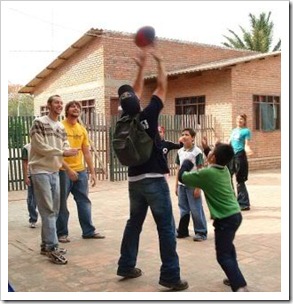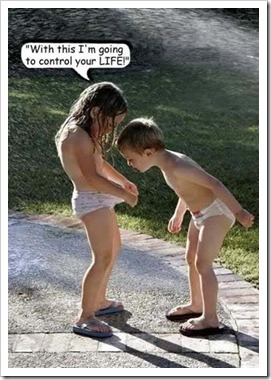
In sober grown-up moments, we all know life is not fair, but when things get out of hand and we feel down, that innocent cry rises up inside us too. “It’s not fair! I’m a good boy/girl. Why is this happening to me? I don’t deserve this”.
Young human beings can only experience the world through their own senses. When they are unhappy, they cry and someone makes everything all right again. Later on, they learn to identify that someone as “Mommy” or “Daddy”, but the world still revolves around them and Mommy and Daddy still do whatever it takes to make the child happy again.
As the grow up, kids begin to notice other people, but they only perceive these other people’s effect on them and do not understand that the other people have their own (different) thoughts and feelings. The most they can imagine is that other people feel exactly the way they feel themselves, that they are as cold, as happy or as sad at the same time.
Experimenters asked children what they believed to be the contents of a box that looked like a particular brand of sweets. After they guessed that the box contained sweets, they were shown that the box in fact contained pencils. The experimenters then closed the box again and asked the children what they thought someone else, who has not seen the contents of the box, would think was inside. Children up to age 4 or even 5 said the other person would say, “Pencils”, because they already knew.
From this point of view, if I want something, other people should know that I want it. Since I am the only person that matters, they should also accommodate me and do what I want, and if they do not, they are being unfair to me.

Funnily enough, it is unrealistic because most of the other people spend their life thinking they are the center of the universe…
Unfortunately, the ability to share the world with other people and grasp that they experience it differently (called “Theory of Mind”) cannot be learned too early. Kids have to go through several phases of mental development before they get to this level of complexity. In fact, there are several such social understandings that kids have to develop and none of them can be achieved too early in their life.
However, comprehending that our thoughts and emotions are mostly hidden from others and realizing that everyone’s world revolves around them is key to being happy in life and living in peace with those around us. Many situations seem horrible to someone who keeps looking for fairness and acceptable to someone who takes responsibility for their own fortune.
At work, not everybody can be the boss. People have different roles and different responsibilities. Sometimes, even CEOs of big corporations have to do things they disagree with. They can complain about the board and the shareholders all they want, but this will only make them unhappy. If they see their own views as subjective and “just one person’s opinion”, they can continue to do a good job, make top dollars and be happy with the things they accomplish.

At home, people are also different. That is not fair, it is just how life works. If you really think about it, there is nobody on Earth exactly like you and there never will be, so the situation is equally unfair (or fair) to everybody. Washing the dishes is not punishment, it is something that needs to be done so you can eat later and stay healthy. The lawn grows naturally, not to spite you. If someone else got home before you, they are not in your armchair, they are sitting where they feel comfortable. The salt ran out as much because you forgot to buy more as because someone else did.
A common problem for kids is dealing with the obligations and rights that stem from their relative age, size and experience.
“Mom, why can’t I stay up? Corry does”. “Yes, but Corry is 5 years older then you and doesn’t have band practice early tomorrow”. “Aw, not fair!” “Sure it is. When Corry was your age, he went to bed early too”.
“Dad, can you get me a cup from the top cupboard?” “You’re taller than me now. Just reach up and grab it”. “Aw, you’d do it for Gemma”. “Of course I would. Gemma is 5”.
Another common problem in a typical family, where things have to be shared, is the expectation that the others in the family know us so well, they can guess what we want, what we really mean and how we feel.
“Hey, where’s the Swiss cheese? I was going to put it in my sandwich today. Not fair!” “Well, did you tell anyone about it?” “Oh”.
These things provide many opportunities to create and then reinforce the understanding that fairness is a narrow, self-centered notion, completely unrealistic in the real world, and that taking responsibility for our feelings, words and actions is a much better approach to life.

As always, we must start with ourselves, because kids are little mirrors of us. Do you tell stories of fairness and unfairness around the dinner table? If so, check your stories and re-interpret them. What was your part in them? What could you have done differently that would change the outcome?
Do you expect your partner or your kids to know how you feel, what you think, what you meant to say or what you want them to do without having to say anything? Can you honestly say you know these things about anyone else?
Seeing and hearing us live a responsible life gives our kids something to imitate. Then, we can also direct their attention to the way they handle their own life and guide them towards more responsible living. The more we do it, the more we help them break the mental jump to “not fair” and create a new path towards, “what can I learn from this?”
Happy parenting,
Gal











